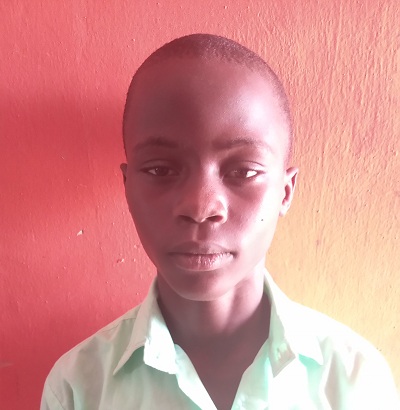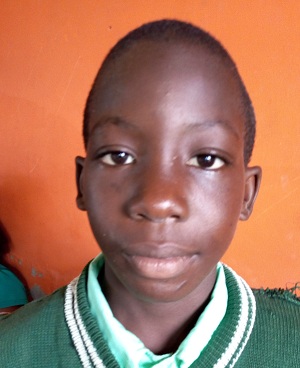DFC
Drug Free Club
Ede North, Osun State
DFC is an extension of NATIONAL DRUG LAW ENFORCEMENT AGENCY (NDLEA) specially established for corps members with the objective of preventing the use and sale of illegal drugs in schools/institutions and amongst corps members. To create awareness on the dangers of drug abuse in most communities.
Our Mission
Our Mission is to provide awareness, resources and skills relevant to fight the sale and the abusive use of drugs and psychoactive substance which are widely available and commonly used for a variety of both medical and non-medical purpose.
Drug Abuse
Drug abuse is a serious public health problem that affects almost every community and family in some way. Each year drug abuse causes millions of serious illnesses or injuries around the world. Drug abuse also plays a role in many major social problems, such as drugged driving, violence, stress, and child abuse. Drug abuse can lead to homelessness, crime, and missed work or problems with keeping a job. It harms unborn babies and destroys families. There are different types of treatment for drug abuse. But the best is to prevent drug abuse in the first place.

Drug abuse in Nigeria
Drug and substance abuse have always been a Nigerian problem, but with the Nigerians under 30, the problem becomes more worrying by the year. Drug abuse has become of contemporary life, music and the now mainstream 'trap culture.' Synthetic marijuana is now treated as a Nigerian rite of passage; an object of 'cool'. From research it is seen that there are many social factors that have resulted in abuse of drugs. These include decline of family value systems, parents not playing their roles properly, children and youth therefore not receiving proper guidance, peer pressure, social media influence, poverty and unemployment.
The most commonly abused drugs in the country are tramadol and codeine. Tramadol is a synthetic opioid analgesic used to treat moderate to severe pain and is the most abused medicine among addicts. It has no effects on the respiratory system but overdose causes arrhythmias, cramps, coma and death. In Nigeria, it is regulated as the 50 and 100mg dosage strengths but very high dosage forms of 200 and 225mg have infiltrated the market. There is also noticeable increase in smuggling of Tramadol capsules. Tramadol use disorder is associated with physical withdrawal symptoms and compulsive behaviour.
Codeine can be obtained as an over-the-counter painkiller and cough medicines in Nigeria but consumers often become addicted. The risk of addiction is great, and in many countries including Nigeria, consumers are required to have prescriptions for all opioid-based medications. The misuse of codeine products contributes to severe health outcomes including liver damage, stomach ulceration, respiratory depression, coma and death.
Other substances abused are Alcohol, Marijuana, Heroin, nicotine, Barbiturates, cocaine e.t.c

DRUG ABUSE Prevention
Parents can prevent drug abuse!
Parents are the best protection youngsters can have against drug abuse. Prevention is the process, which builds into children a resistance to abusing drugs, so that drug use never begins. Prevention is a simple concept but it requires constant work to be successful. Prevention is a positive process. It is a process, which cannot be started too soon. Research indicates that children and teenagers diagnosed with ADHD are at greater risk to alcohol and drug abuse than children and teenagers in the normal population. The following are important elements in helping kids resist becoming involved with drugs and alcohol:
1. Love and affectionate as the child grows.
2. Consistent and fair discipline.
3. Open channels of communication for thoughts and feelings.
4. Opportunities for successful experiences at home and in school.
5. A stable family atmosphere (family time together, family rituals).
6. Tolerance of the child's mistakes (no put-downs).
7. Models of strong, thoughtful and feeling adults.
8. Accurate information about the problems of growing up today (sexuality, drugs, crime, etc.)
HEALTH CONDITIONS RELATED TO Substance abuse
Alcoholism
A chronic disease characterised by uncontrolled drinking and preoccupation with alcohol.
Symptoms may include:
Physical substance dependence
Problems with coordination
Anxiety
Alcohol abuse
A pattern of drinking that interferes with day-to-day activities.
Symptoms may include:
Physical substance dependence
Craving
Vomiting
Clinical depression
A mental health disorder characterised by persistently depressed mood or loss of interest in activities, causing significant impairment in daily life.
Symptoms may include:
Substance abuse
General discontent
Anxiety
Antisocial personality disorder
A mental health disorder characterised by disregard for other people.
Symptoms may include:
Substance abuse
Antisocial behaviour
Manipulativeness
Substance use disorder
A substance use disorder, also known as a drug use disorder, is a medical condition in which the use of one or more substances leads to a clinically significant impairment or distress
DFC Executives

Oyewusi Clement .O.
President
Peace Obi
Vice President
Dappa Choice
General Secretary
Olaniyi Shakirudeen Akanni
Financial Secretary & Treasurer
Oshoala Korede Hazeem
Project Manager













